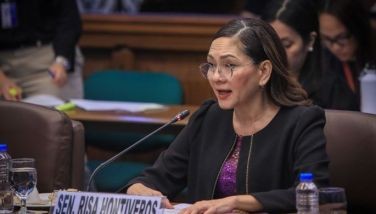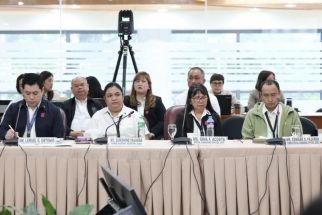SC asked to void ‘pork’ in LGUs
MANILA, Philippines - After voiding the controversial pork barrel funds of lawmakers, the Supreme Court (SC) is now confronted with legal issues involving similar funds in the local government.
A petition was filed before the high court last Friday afternoon seeking to void the continuing practice of alleged “pork barrel system†in local government units similar to the Priority Development Assistance Fund (PDAF) of lawmakers that was declared unconstitutional last year.
The 27-page petition specifically assailed the appropriation of lump sum and discretionary funds for the office of Quezon City Mayor Herbert Bautista, which was passed by the city council and approved by Budget Secretary Florencio Abad.
It was filed by businessman John Charles Chang Jr., columnist Rodrigo Kapunan and community leader Myrleon Peralta, all concerned residents and taxpayers in the city represented by lawyer Manuelito Luna.
Petitioners alleged that the practice of appropriating lump sum and discretionary funds to local governments both by the city council and Department of Budget and Management constitutes “undue delegation of legislative power†to the executive, in this case, the city mayor – the same ground used by the high court in voiding PDAF of lawmakers.
They said this practice violates Republic Act No. 7160 or the Local Government Code (LGC).
They said these discretionary funds of the QC government amount to over P4 billion for 2013 and 2014.
For instance, petitioners cited Item 4.1 of this year’s budget of the city hall which “inexplicably lacks a purpose in breach of the limitations provided for in the LGC.â€
They alleged that this item amounting to P600 million can be considered as lump sum.
Petitioners said there are also discretionary funds in the budget listed as “other personal benefits, other maintenance and operating expenses, and confidential and intelligence and extraordinary expenses.â€
All in all, the assailed funds amount to P2.095 billion. The same questioned funds worth P1.979 billion were also found in last year’s budget.
Section 305 of the LGC requires that local government funds “shall be spent solely for public purposes and shall be based on functions, activities and projects in terms of expected results.â€
“It needs to be emphasized that giving the latter a blanket authority to spend and disburse the funds unblinkingly, without any itemized public purposes or details runs counter to the aforecited law,†petitioners argued.
They explained that the principle of non-delegability of legislative power cited by the high court in the ruling on the PDAF case applies to the sanggunian (city council).
“As structured, the local chief executive exercises executive power while the sanggunian performs legislative functions. Under this set-up, both entities are barred from encroaching on the powers and prerogatives of the other. None may step into so-called forbidden grounds without running afoul with the LGC and the fundamental law,†they said.
But they alleged that this has not been the case in the questioned local government unit.
“Clearly, the principle of checks and balances was swept under the rug by the concerned sanggunian in bestowing such power and unfettered discretion over lump sums to the mayor.â€
- Latest
- Trending
































